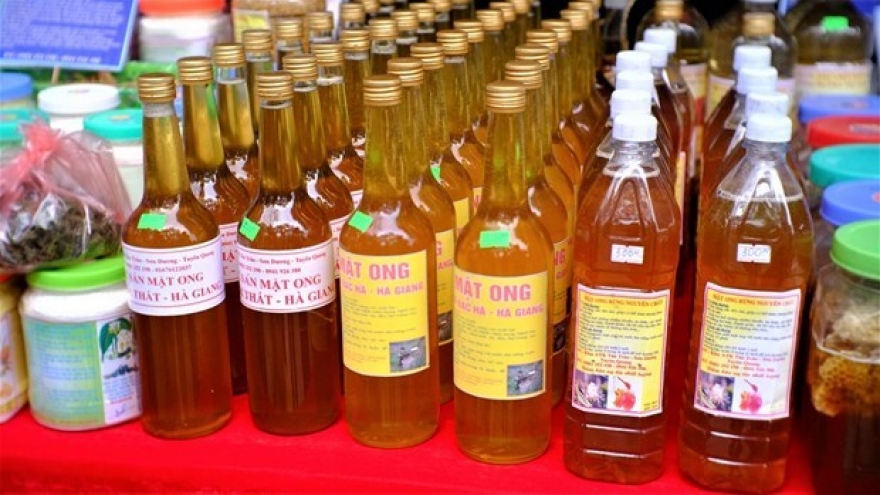Vietnamese honey risks losing US market due to high anti-dumping tariff
VOV.VN - The local beekeeping sector is at risks of being negatively impacted in the event that the United States imposes an anti-dumping tariff of up to 400%, according to industry insiders.
This comes amid the US Department of Commerce planning to apply its highest ever tariff rate of over 412% on raw honey imported from the nation, which exports more than 85% of its honey to the US market.
The final conclusion on the application of the tax rates is set to be issued by the US Department of Commerce in April.
Late last year, the DOC issued preliminary conclusions regarding the anti-dumping probe into local honey products.
In line with this the DOC determined the dumping margin of between 410.93% and 413.99% for honey products originating from the nation and moved to impose a corresponding temporary tax rate.
Currently, there are roughly 35 Vietnamese companies exporting honey, with an annual turnover reaching between US$70 million and US$100 million.
Following the imposition of high anti-dumping tariff, the local beekeeping industry may lose the US market as it cannot compete with other countries like Brazil, India, Ukraine, and Argentina, all of which are subject to much lower tariffs.
In this regard, Le Thanh Van, president of the Vietnam Beekeepers Association, described the application of high anti-dumping duties as an unreasonable move as honey exports to the market must meet stringent standards set by the US Food and Drug Administration (FDA).
Tong Xuan Chinh, deputy director of the Department of Livestock Production under the Ministry of Agriculture and Rural Development, underlined the need to strengthen co-ordination among relevant ministries, with agencies instructing both businesses and farmers to comply with requests made by the US side.
Simultaneously, he also underlined the necessity of developing safety criteria for honey, which will provide a basis for assessment of the quality of export items in the future.
Furthermore, local firms are advised to promote trade promotion activities to diversify honey export markets and avoid dependence on a single market.


